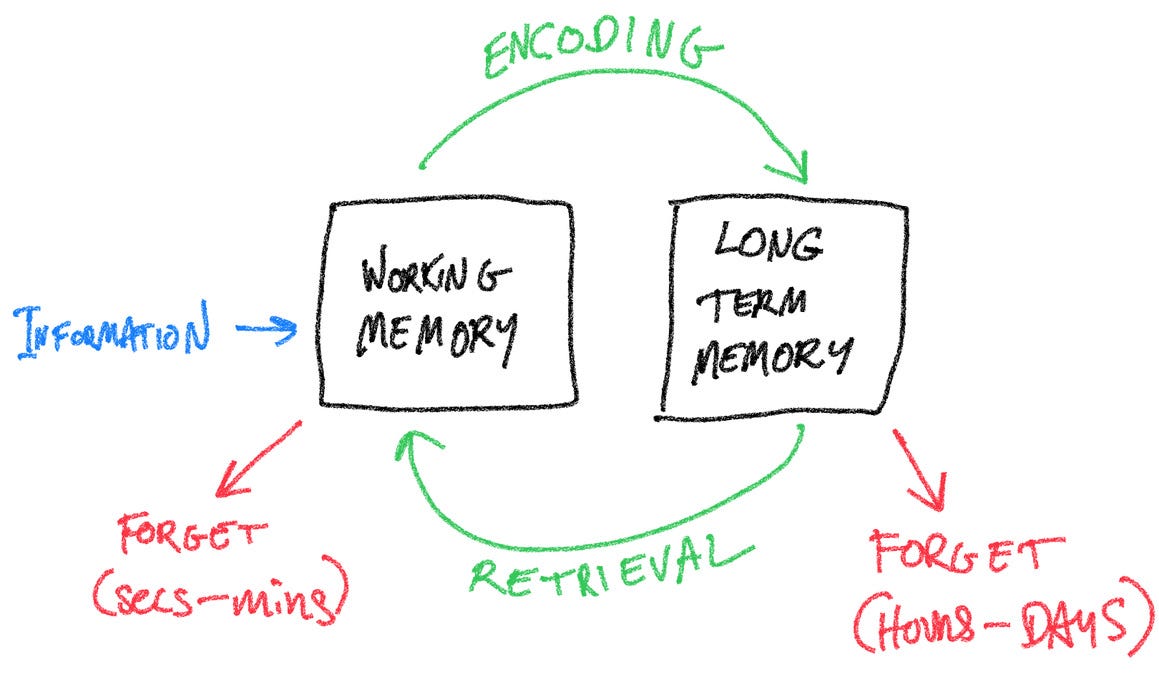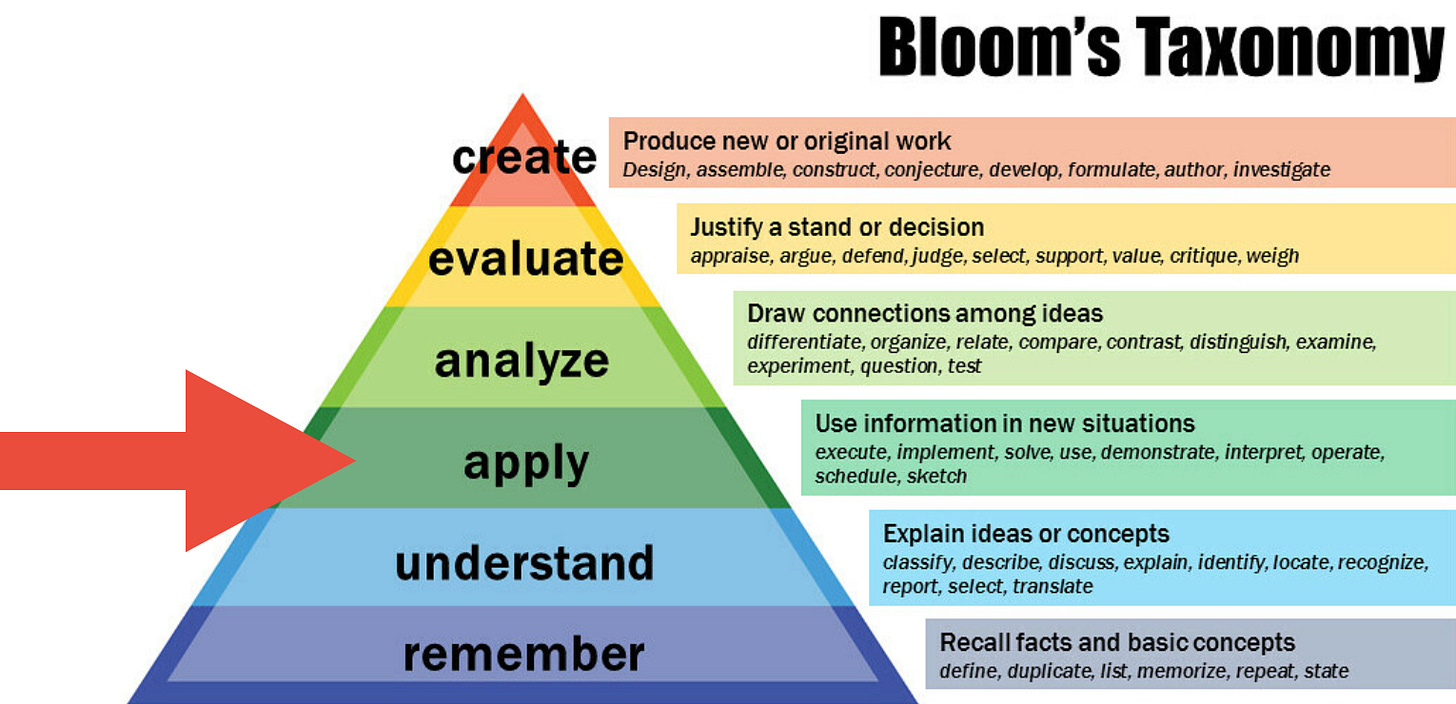The ultimate guide to skyrocketing academic performance
Unlocking the science of effective learning.
With over two decades of experience in the EduTech industry, I've had the privilege of delving deep into the science of learning. Far from being theoretical musings, the insights gained have practical applications that can genuinely elevate students' academic performance.
In this two-part series, I will explore a holistic approach to effective learning—breaking down the science and offering actionable strategies.
Part 1: In the first instalment, I examine the shift from traditional rote learning techniques to modern, evidence-based strategies. I'll discuss why higher-order learning methods, such as active learning and revision strategies, can bring about a sea change in how students understand and recall course material.
Part 2: The second part will be a practical guide that outlines six of the most effective study techniques, supported by the latest research. Moreover, I'll be providing prompts for Artificial Intelligence (AI) chatBots like ChatGPT so students can supercharge these techniques, offering a revolutionary approach to studying.
So, whether you're a student looking to up your academic game, an educator seeking to facilitate better learning, or a parent aiming to support your child's educational journey, this series has something for you.
Beyond linear learning: Recursive and excursive strategies
Learning isn't just a one-off event; it's a complex, often non-linear journey. Unlike academic books that typically follow a linear structure, real learning is fluid and adaptable. Students come to these texts with varied prior knowledge, making it essential for them to realise they aren't limited to a sequential approach. Free navigation through the material can unlock deeper understanding, making detours and alternative pathways not just permissible but often essential. The concepts of recursive and excursive learning strategies help to unpack this complexity:
Recursive learning
What it is: Recursive learning suggests that the learning process is iterative. Students often revisit topics multiple times to deepen their understanding. Keeping a record of gaps in knowledge can enhance this ongoing process.
Why it's important: A single run-through of a topic rarely provides a comprehensive understanding. As students gain more knowledge, revisiting topics can offer fresh insights and deepen comprehension.
Excursive learning
What it is: Excursive learning indicates that the learning path isn't strictly linear. It allows for detours and alternative routes.
Why it's important: Learning isn't a straightforward journey from point A to point B. Exploring related topics or revisiting previous ones can often lead to a more effective understanding.
Combining both principles
When used together, these principles suggest that effective learning is both deep (recursive) and broad (excursive).
Think of the learning process as a continual loop between recursive and excursive strategies. Start with a foundational understanding of a topic (recursive) and then make detours to explore related concepts (excursive). Upon returning to the main subject, the learner’s understanding will not only be deeper but also enriched by the additional context.
Memory in motion: encoding, storing, retrieving
Understanding how to learn is as crucial as the learning itself. When it comes to processing and retrieving information, it’s useful to comprehend how information is stored in the brain.
In simple terms, the brain possesses two kinds of memory: working memory, which temporarily holds information for immediate use, and long-term memory, where information is stored for extended periods. To preserve information for future use, it must be 'encoded' into long-term memory. Even in long-term memory, information can be forgotten, albeit generally over a more extended timeframe. When needed again, this stored information is 'retrieved' back into working memory for use.
The importance of retrieval in learning
“Retrieval is a memory modifier” - Robert Bjork
While initial encoding remains crucial, the emphasis is increasingly shifting towards revision or retrieval practice as the more impactful component in the learning process.

Retrieval Practice: Studies highlight the power of active recall in strengthening memory and enhancing retention.
Desirable Difficulties: Research suggests that introducing challenges into the retrieval process can improve long-term retention.
Schema Theory: A solid foundational understanding in a subject makes retrieval more efficient.
Key takeaways:
Efficiency Gains: Effective retrieval becomes optimised when built on a strong foundational understanding, enabling quicker identification and filling of knowledge gaps.
Resource Allocation: A stronger focus on retrieval practice over initial encoding can yield better learning outcomes with the same or fewer resources.
Adaptive Learning: A robust foundational knowledge allows for the application of various advanced retrieval methods, enhancing the overall learning experience.
Memory as a network
Traditional education often places excessive focus on rote memorisation of disconnected facts. While memorisation is essential for reasoning and decision-making, the issue arises when these facts lack context or interconnectedness.
Active Learning and Elaboration are posited as the solutions to this problem. These approaches involve connecting new information to existing knowledge, thereby weaving a network of facts, concepts, and ideas. This makes learning more effective and widely applicable.
In essence, isolated facts are of limited use. However, when interconnected through elaboration, they provide a robust foundation for deeper understanding and reasoning.
Engaging actively with ideas enhances learning more effectively than passively absorbing information. In the context of "memory as a network," retrieval practice assists in two main ways:
1. Strengthening correct connections: For instance, in free recall, actively retrieving a piece of information from memory without any cues strengthens the neural pathways associated with that information. This makes it easier to recall the same information in the future.
2. Minimising interference: This practice also limits disruptions from irrelevant memories, thereby sharpening and organising your memory network. It offers advantages over elaboration techniques by preventing the formation of links to unrelated information.
By focusing on retrieval practice, not only are the correct connections in memory solidified, but distractions are also reduced, making overall learning process more effective and efficient.
Active learning

Active learning is a well-researched and proven method for improving educational outcomes. However, its effectiveness varies depending on several factors, such as the learning context, the specific task at hand, and the learner's existing knowledge base. It may require more cognitive effort than passive listening, but this extra effort leads to improved memory retention.
To fully leverage active learning, students should aim to operate at one or two levels above the lower-order levels of learning, as categorised by Bloom's Taxonomy.
To deepen learning and enhance memory retention, students should initially focus on higher cognitive levels such as "apply" and "analyse." Progressing to even higher levels like "evaluate" and "create" enables the formation of complex connections, facilitating effective comparison, prioritisation, and contrasting of information.

Moreover, research suggests that the most impactful active learning techniques include distributed practice, practice testing, interleaved practice, self-explanation, and elaborative interrogation, which will be discussed in the next article. By incorporating these strategies, learners are better positioned to engage in more profound, more effective learning.
Lower-order learning techniques like note-taking, highlighting, and summarisation are generally less effective.
Wrapping up: the journey towards smarter learning
In this first instalment of our two-part series, I've embarked on a comprehensive journey through the science and strategies behind effective learning.
Takeaways and what's next
Key takeaways:
Learning is a non-linear, dynamic process that benefits from a well-balanced approach incorporating both depth of understanding and breadth of knowledge.
Memory isn't just about storing information but effectively retrieving it for long-term retention and application.
Active learning techniques, grounded in evidence-based research, offer the most promising paths for academic success.
What's coming up:
In the next article, I'll turn these theories into action. Get ready for a deep dive into the most effective study techniques that have been proven to significantly improve academic performance. Plus, I'll provide student-tested AI prompts designed to help students quickly adapt to these new study techniques.
So, whether you're a student, an educator, or a lifelong learner, stay tuned for practical insights that can transform the way you approach learning.
References
Brown, Roediger III, McDaniel, (2014). Make it stick: The science of successful learning
Kirschner, P. A., Hendrick, C., & Heal, J. (2022). How Teaching Happens: Seminal Works in Teaching and Teacher Effectiveness and What They Mean in Practice
Rohrer, D., & Pashler, H. (2007). Increasing retention without increasing study time. Current Directions in Psychological Science.






Cheers Ger, A very interesting read and I look forward to what comes next..
Nice work Ger. An interesting read.